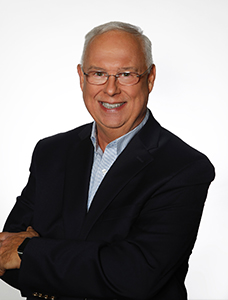How to Handle an Out-of-State Inheritance in Ohio

Receiving an inheritance can be an overwhelming and emotional experience. It can also raise unexpected legal complexities. This is especially true if the inheritance crosses state lines. However, with proper guidance and an understanding of the legal issues involved, you can successfully navigate an out-of-state inheritance while protecting your interests and honoring your loved one’s wishes.
When you inherit assets, property, or financial accounts from someone who lives in another state, you must address two sets of state laws: those that govern the asset or property in the state where your deceased relative lived, and those that govern inheritance in your home state. This dual jurisdiction can present complex legal challenges, including an unfamiliar probate process and the need to manage real estate in another jurisdiction. Understanding your legal rights, duties, and obligations is essential to avoiding costly mistakes and unnecessary delays. The Ohio probate team at Gudorf Law Group, LLC, can provide legal advice and guidance to help you successfully navigate these issues.
Understanding Ohi… Read More
What is a Life Estate Deed in Ohio?

An essential part of estate planning is creating the necessary documents to ensure your assets are secure during your lifetime and that ownership will transfer to the correct parties upon your death. As part of your estate plan, you may consider using a life estate deed to transfer property ownership. When a life estate deed is used, the property owner retains a “life estate,” meaning they continue to own and can live on the property for the rest of their life. The property transfers to an individual of their choosing upon their death.
A life estate deed can be a useful estate planning tool that allows a property owner to transfer property to a named beneficiary while retaining the right to use the property for the remainder of their lifetime. While a life estate deed is similar to a transfer on death deed, there are key differences that you must understand to decide which estate planning tool is right for you.
What Is a Life Estate Deed?
A life estate deed is a way to transfer property from one person (the Grantor) to another person (the Grantee, also known as th… Read More
Partition of an Inherited Home After Probate Explained

After a loved one passes away, their assets usually go through a legal process called probate. Probate helps ensure that the person’s debts are paid and that their assets are passed on according to their will or Ohio law. Sometimes, more than one person inherits the same property, like a family home. When this happens, disagreements can arise about what to do with that home. If the co-owners cannot agree, the next step might involve something called a partition of an inherited home.
At Gudorf Law Group, LLC, we often help families navigate the partition of inherited property in Ohio. This can be a stressful and emotional time, especially if the property has sentimental value. Understanding how partition works and when it becomes necessary can help you make informed choices and protect your best interests.
What Does Partition of Inherited Property Mean?
Partition of inherited property is a legal process used to divide jointly owned property among heirs or beneficiaries. In Ohio, if two or more people inherit a home and can’t agree about what to do with it, any one of them can file a lawsuit to forc… Read More


